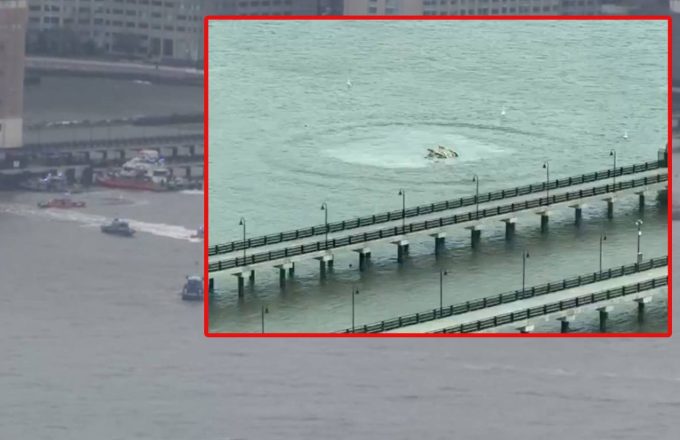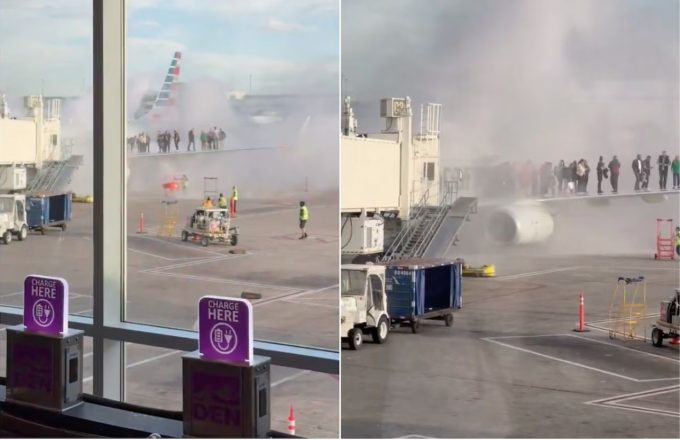Russian military intelligence officer Denis Smolyaninov has been identified as one of the masterminds behind a bomb parcel plot targeting flights to the United States, which sparked a fire at a DHL depot in Birmingham, UK, in 2023.
Authorities in the U.S. and UK suspected that Moscow was attempting to smuggle explosives onto commercial flights bound for North America, after suspicious devices began appearing at logistics centers across Europe.
According to reports published by the British press, at least two incendiary devices were sent through DHL distribution hubs in Birmingham (UK) and Leipzig (Germany). Although the resulting fires were contained and no casualties were reported, investigators warned that the outcome could have been catastrophic had the devices detonated mid-flight.
The Times reported that Smolyaninov, a Russian GRU officer, was identified as the key figure behind the plot. Four individuals were arrested in connection with the Birmingham incident, accused of working with a foreign intelligence agency to carry out terrorism and sabotage.
The parcels were disguised as everyday consumer goods—massage cushions, cosmetics, and sex toys—allowing them to slip through standard security screenings.
A joint investigation by German broadcasters WDR and NDR, along with Süddeutsche Zeitung, confirmed the discovery. European authorities said the bombs failed to detonate “by sheer accident,” narrowly avoiding an aerial disaster.
The attack appeared to be aimed at exposing weaknesses in the transatlantic logistics chain connecting Europe and North America. The GRU had previously been linked to similar efforts. According to documents obtained by the Dossier Center—funded by Kremlin critic Mikhail Khodorkovsky—Smolyaninov had been plotting to disrupt Western aviation since at least 2014.
Those documents also suggested that Russian agents had studied ways to interfere with communication between pilots and ground control, potentially leading to dangerous flight deviations and accidents.
Throughout 2024, more suspicious parcels were shipped from Warsaw to the U.S. and Canada, this time carrying tracking devices hidden in clothing and sports shoes. These were believed to be test runs. Several individuals, including Ukrainian and Lithuanian nationals, were arrested in connection with the scheme, Daily Mail reported.
Another individual linked to the case is Aleksandr B., a Russian national arrested in Bosnia-Herzegovina in 2023 for allegedly training Moldovans to organize protests. He was extradited to Poland in February and now faces charges of coordinating sabotage.
However, the wave of sabotage came to a halt later that year after U.S. officials warned Russia directly that they were aware of its involvement and would not tolerate further escalation.
In response, the European Union imposed unprecedented sanctions in December on 16 individuals and three GRU-linked entities for so-called hybrid attacks, including disinformation, cyberattacks, and arson, aimed at destabilizing Europe.
“For the first time in history, the European Council has decided to impose restrictive measures on individuals and entities responsible for Russia’s destabilizing actions abroad,” the EU said in a statement.
These measures target those supporting Russian government policies or actions that threaten the security, independence, and stability of the EU and its member states, as well as third countries, through hybrid threats such as coordinated disinformation and interference.
Among the primary targets is Moscow’s GRU Unit 29155, accused of orchestrating assassinations, bombings, and cyberattacks across Europe. The unit has been linked to several high-profile incidents, including the 2018 poisoning of defector Sergei Skripal in the UK and a 2014 munitions warehouse explosion in the Czech Republic.
Colonel Denis Smolyaninov was also sanctioned for his role in these covert operations. The EU accused him of actively planning bombings, arson, and infrastructure damage across the EU to disrupt weapons supplies to Ukraine and sow division within Europe.




















